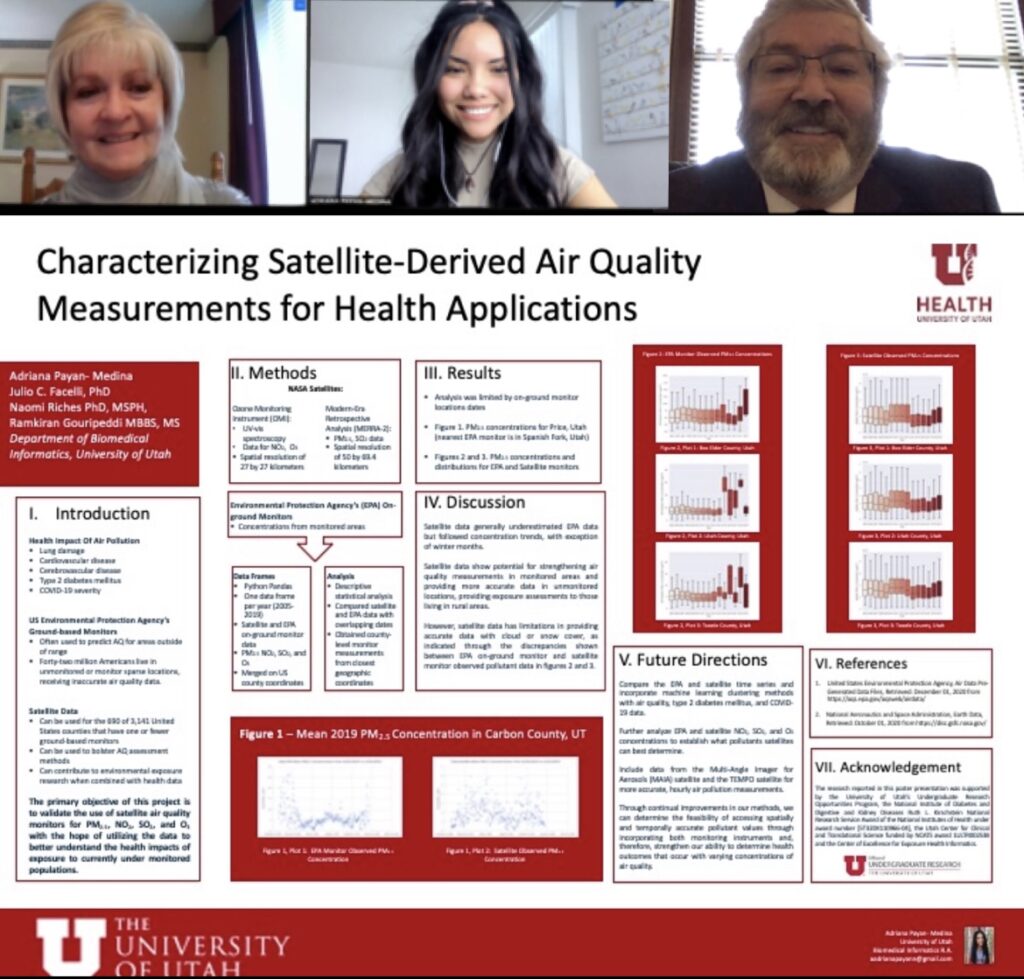The informatics faculty presented a webinar on March 11 for the National Institute of Environmental Health Sciences (NIEHS).
You can view the recording here.
Comprehensive quantification of effects of the modern environment on health requires taking into account data from all contributing environmental exposures (exposome) which can span endogenous processes within the body, biological responses of adaptation to environment, physiological manifestations of these responses, and socio-behavioral factors. A more complete understanding of air pollution calls for integration of data from wearable and stationary sensors, environmental monitors, personal activities, physiology, medication use and other clinical data, genomic and other biospecimen-derived, person-reported and computational models, accommodating variable spatio-temporal resolutions and accounting for multiple study, experimental and analytical designs.
We established a Center of Excellence for Exposure Health Informatics (CEEHI) that will serve as a go-to collaborative for continuing investigations into state-of-the-art informatics methods for exposomics, and for researchers interested in conducting sensor-based, mobile and virtual exposure health studies. CEEHI seeks to advance the informatics infrastructure, Exposure Health Informatics Ecosystem (EHIE), derived from federally funded NIH/NIBIB PRISMS program, by the use of an ultra-large-scale infrastructure for integrated sensor monitoring systems, advance the use of novel sensors, and support the management of research processes and data for activities related to the study and its operations. EHIE consists of sensor data acquisition pipelines, participant and research facing tools, computational modeling frameworks, and big data integration platforms. In this presentation, we discuss CEEHI and EHIE, and its evolution towards a generalizable multi-scale and multi-omics ecosystem providing robust pipelines for using real-time, low-cost air quality sensors based reproducible exposomic research.
About the Speakers
Ram Gouripeddi, M.B.B.S., M.S., is an Assistant Professor in Department of Biomedical Informatics, and an Associate Director of Research of Center of Excellence for Exposure Health Informatics, University of Utah.
Julio Facelli, Ph.D., is a Professor and Vice Chair of Department of Biomedical Informatics, Associate Director for Biomedical Informatics, Center for Clinical and Translational Science, and Co-Director of Center of Excellence for Exposure in Health Informatics, University of Utah.
Katherine Sward, R.N., Ph.D., FAAN, is an Associate Professor of Biomedical Informatics and Nursing in the Department of Biomedical Informatics and College of Nursing, and Co-Director of Center of Excellence for Exposure in Health Informatics, University of Utah.

